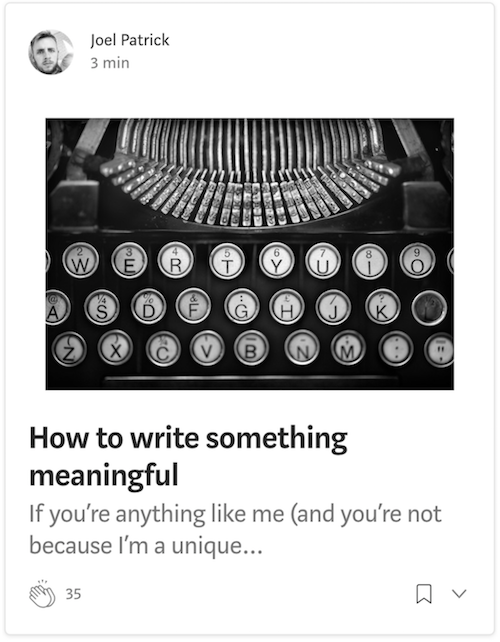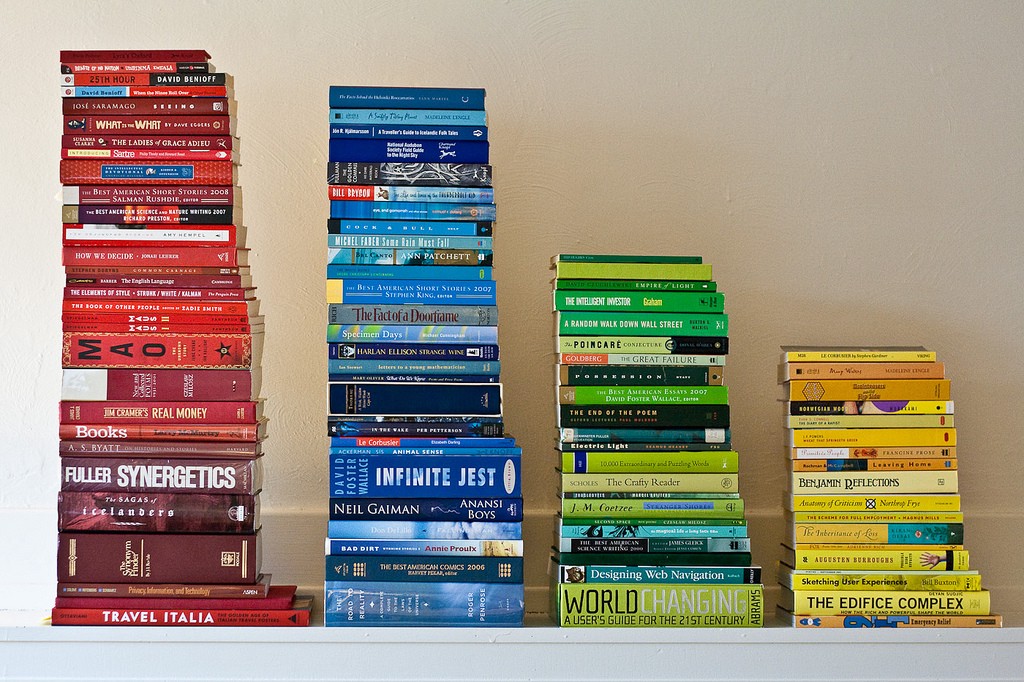
Here are the 8 lists I started with, amalgamated, and culled.
- The Guardian?s The 100 greatest novels of all time.
- The BBC?s Big Read Top 100.
- Amazon?s 100 Books to Read in a Lifetime
- Harvard?s Book store top 100.
- Modern Library?s 100 Best Novels.
- Time?s All-Time 100 Novels.
- The Telegraph?s 100 Novels Everyone Should Read.
- The Art of Manliness? (hey, why not) 100 Must-Read Books: The Essential Man?s Library.
Creating the List

And now for the books. Surprisingly enough, there were 520 books from the 8 lists, which meant there was less overlap than I expected. 65 of the books were pretty straightforward as they were mentioned at least 3 times (with The Great Gatsby and Catch-22 being the only 2 making it on all 8 lists). To make up the remaining 45 books, since my list had to be 100 books long, I simply needed to choose those books that made it onto at least 2 lists. Unfortunately, 91 books were on at least two lists. So, I decided to further cull those 91 by focusing on the books that were mentioned at least twice by The Guardian, Amazon, Harvard, Time and The Telegraph. That left me with the right number of books and, voila, the greatest list ever created now lives. Lucky for me most are available on Audible ?. Enjoy!
The Ultimate List: 100 Books to Read before You Die

Fiction novels
All titles below are links to where you can grab a copy for yourself. You can also see an image of each book cover below.
- The Great Gatsby by F. Scott Fitzgerald ? Set among the rich of 1920?s New York City, the mysterious millionaire Jay Gatsby pursues his quixotic passion and obsession for the former debutante Daisy Buchanan.
- Catch-22 by Joseph Heller ? A novel seven years in the making (published in 1961) and said to be one of the most important in the 20th century. Catch-22 primarily follows the storyline of Captain John Yossarian, a crewman of a World War II bomber who is stationed on a small Mediterranean island where he repeatedly, and desperately, attempts to stay alive.
- On the Road by Jack Kerouac ? Inspired by the author?s own experiences, the story of cross-country road trips by a number of penniless young people who are in love with life, beauty, jazz, sex, drugs, speed, and mysticism.
- To Kill A Mockingbird by Harper Lee ? A novel set in the American south exploring themes of justice and innocence through the experiences of a six year old girl, Scout, watching as her father defends a black man on trial in the 30s.
- The Lord Of The Rings by J. R. R. Tolkien ? From quiet beginnings in the Shire the story follows hobbits Frodo, Sam, Merry, and Pippin across Middle-earth to stop the Dark Lord Sauron, who had in an earlier age created the One Ring to rule the other Rings of Power as the ultimate weapon in his campaign to conquer Middle-earth.
- Lolita Vladimir by Nabokov ? A controversial and shocking classic told from the perspective of the narrator, Humbert Humbert, a middle-aged professor who falls for and becomes sexually involved with his 12-year-old step-daughter.
- The Catcher in the Rye by JD Salinger ? Holden Caulfield narrates his story from the previous Christmas -when he was kicked out of a preparatory school- to present. We learn about his life and his attempt to make sense of himself, meaning, and the events that have shaped him.
- Midnight?s Children by Salman Rushdie ? Saleem was born at midnight on the night of India?s independence. He is one of only 1,001 children born at that hour and each was endowed with an incredible talent.
- Alice?s Adventures In Wonderland by Lewis Carroll ? Written in 1865, Lewis Carroll (Charles Lutwidge Dodgson) creates a fantasy world discovered by Alice when she falls through a rabbit hole.
- Ulysses by James Joyce ? Considered one of the most important works of modernist literature, Ulysses chronicles the peripatetic appointments and encounters of Leopold Bloom in Dublin in the course of an ordinary day.
- Lord of the Flies by William Golding ?A group of boys are stranded on an uninhabited island in the 50?s when they embark on the disaster of trying to govern themselves.
- The Grapes Of Wrath by John Steinbeck ? Set against the backdrop of the great depression, Tom and his family are forced from their farm in the Oklahoma Dust Bowl and set out for California along with thousands of others in search of a better life.
- 1984 by George Orwell ? The novel was written in 1949 and depicted a future (1984) when government surveillance had reached a totalitarian state, repressing the freedoms of individuals and society as a whole. Follow Smith as he shifts from party member to rebel, navigating the Thought Police, Big Brother, and more.
- Jane Eyre by Charlotte Bront ? Jane Eyre, first published in London in 1874, is the love story between the independent, once-orphaned Jane and her domineering employer, Rochester. Jane comes to a cross-roads when she discovers Rochester?s terrible secret.
- Moby-Dick by Herman Melville ? Moby dick is the story of Ahab, a whaling captain whose ship and leg were destroyed by an albino whale. Ahab pursues his mission: revenge on the whale.
- Mrs. Dalloway by Virginia Woolf ? The novel Mrs. Dalloway follows the thoughts, experiences, and memories of several characters on a single day in London, most notably Mrs. Dalloway herself, the wife of a politician in post-World War I, as she plans a dinner party for that evening. Some have said the book contains some of the most beautifully written sentences in English literature.
- A Passage to India by EM Forster ?Written in 1924 when Britain ruled India and the Indian independence movement was active. Aziz, an Indian doctor, navigates the formalities, relationships, love interests and frustrations that develop when living alongside the English ruling class.
- Brave New World by Aldous Huxley ?Huxley writes of a dystopian future genetically engineered to provide a pain-free existence. There?s just one problem: for Bernard, life is meaningless. Perhaps visiting one of the few remaining Savage Reservations where the old way of life and imperfection still exists will cure his existential angst.
- Things Fall Apart by Chinua Achebe ? Okonkwo is an ambitious man determined to be the leader of Umuofia, the village in which he lives. His beliefs and zealousness for the ways and traditions of the land are his guide.
- The Prime of Miss Jean Brodie by Muriel Spark ? Miss Jean Brodie is determined to instil in her students independence, passion, and ambition. She advises her girls, ?Safety does not come first. Goodness, Truth, and Beauty come first. Follow me.?
- One Hundred Years of Solitude by Gabriel Garca Mrquez ? The novel, first published in Spanish as Cien aos de soledad in 1967, is a tale of seven generations of the Buenda family that also spans 100 years of turbulent Latin American history. Jos Arcadio Buenda builds the beautiful city of Macondo in the middle of a swamp. At first prosperous, a tropical storm lasting nearly five years almost destroys the town, and by the fifth Buenda generation its moral compass as well.
- Pride and Prejudice by Jane Austen ? Written in 1813, Pride and Prejudice remains one of English literature?s most beloved novels. Mr. Bennet has five daughters, but can only pass his estate to a male heir, risking devastation for the family upon his death. One of the daughters must marry well to stave off destitution. This pressure drives the plot, particularly for Mr. Bennet?s daughter, Elizabeth.
- Animal Farm by George Orwell ?An allegorical novella published in August 1945, two weeks prior to the end of WWII, about a group of farm animals rebelling against their farmer in pursuit of animal equality.
- Crime And Punishment by Fyodor Dostoyevsky ?Originally published in Russian in 12 parts, Dostoyevsky writes of Rodion, a jaded and poor student in St. Petersburg, who intends to kill an underhanded pawnbroker for money. What follows is the psychological and practical consequences of his actions.
- Beloved by Toni Morrison ?The 1988 Pulitzer Prize winning story of an African American slave woman who escapes to the free city of Cincinnati just prior to the Civil War. The story is told by four voices and reveals a shocking narrative, which darts back and forth in time.
- Invisible Man by Ralph Ellison ? Far from the science fiction that may come to mind when reading the title of this work, an Invisible Man -published in 1952- is the powerful story of a young black man who is seen as a grouping of stereotypes rather than who he is, rendering him ?invisible?.
- Slaughterhouse-Five by Kurt Vonnegut ? The semi-autobiographical account of the firebombing of Dresden, Germany by the British and American air forces in the February of 1945. Slaughterhouse Five is the story of Billy Pilgrim, a decidedly non-heroic man who travels back and forth through flashbacks, visiting his birth, death, all the moments in between.
- The Stranger by Albert Camus ? This 1942 novel exemplifies Camus? existentialism, Meursault tells the before and after account of his murder of another man shortly after his mother?s funeral.
- Don Quixote by Miguel De Cervantes ? A middle-aged man from central Spain, Don Quixote, becomes obsessed with the ideals of chivalry and takes up his horse, sword, and feeble side-kick to defend the helpless and exact punishment on the wicked. Quixote?s deeds are typically as as forlorn as his mental state.
- Robinson Crusoe by Daniel Defoe ? First published in London in 1719, Crusoe is the sole survivor of a shipwreck, leaving him on an uninhabited island and provides the account of how he survived and the unlikely helpers along the way.
- Frankenstein by Mary Shelley ?A classic by any definition, Frankenstein tells the story of a scientist who creates a monster through a science experiment and is now faced with the consequences of what to do with this newly formed creature.
- The Count of Monte Cristo by Alexandre Dumas ? Edmond, a young sailor from Marseilles, is set to become captain of his own ship and to marry his beloved. However, spiteful enemies provoke his arrest and imprisonment, until he intends to escape in search of hidden treasure.
- David Copperfield by Charles Dickens ?Dickens initially published his eighth work as a series between 1849?1850 and thus the original full title was, The Personal History, Adventures, Experience and Observation of David Copperfield the Younger of Blunderstone Rookery, which is as good of a description as it is a title. The story is told by Copperfield as a man, recounting the ups and downs of his childhood and youth.
- Wuthering Heights by Emily Bront ? The story revolves around the tempestuous romance between Heathcliff, an orphan who is taken home to Wuthering Heights on an impulse, and Catherine Earnshaw, a strong-willed girl whose mother died delivering her.
- Little Women by Louisa M Alcott ?Published in 1868 and 1869, the novel details the lives of four sisters? transition into womanhood and their harrowing experiences along the way.
- The Call of the Wild by Jack London ? A compelling tale of a bold dog that, thrust into the harsh life of the Alaska Gold Rush, ultimately faces a choice between living in man?s world and returning to nature.
- The Wind in the Willows by Kenneth Grahame ? Published in the early 1900s, The Wind in the Willows are animal tales by British writer Kenneth Grahame that began as a series of bedtime stories for his son.
- Scoop by Evelyn Waugh ? Based on Waugh?s own experience as a war correspondent in Ethiopia, Scoop chronicles Lord Copper?s decision to appoint just the right chap to cover a promising war in the African Republic of Ishmaelia. So begins the story, a comedy of mistaken identity and brilliantly irreverent satire of the frenzied pursuit of hot news.
- The Big Sleep by Raymond Chandler ? A dying millionaire hires a private detective to take care of the blackmailer of one of his two troublesome daughters. However, he finds himself involved with more than just extortion. Kidnapping, pornography, and murder are just a few of the complications he finds himself in.
- Lucky Jim by Kingsley Amis ? Jim has accidentally landed a job in one of England?s newly formed universities, which promises a comfortable future- that is to say, if he can keep away fellow lecturer Margaret?s unwelcome advances and navigate a host of other socially unbearable circumstances.
- If on a Winter?s Night a Traveller by Italo Calvino ? Praised as a postmodern masterpiece, the book is about the reader trying to read the book itself, with each chapter divided in two parts. The first part is in second person describing the process of interpreting what?s forthcoming and the second part is the continuation of the narrative unfolding ? the story of a book-fraud conspiracy.
- A Bend in the River by V. S. Naipaul ?Salim, an Indian man, finds himself in mid-20th century, post-colonial Africa pursuing a business venture only to discover a ruined shell of a town left behind by European colonizers.
- Housekeeping by Marilynne Robinson ?Housekeeping is the story of two orphan girls living in secluded Idaho and are raised by a series of relatives until they land in the care of their aunt Sylvie, a true drifter that becomes the central character of the novel.
- Atonement by Ian McEwan ?Atonement follows Briony from the age of 13 where, in 1935, what she bore witness to marked her life and the trajectory of the lives around her. However, could it be that her preconceived notions shaped what is that she saw?
- His Dark Materials by Philip Pullman ?A series of three fantasy novels focused on two children, Lyra and Will, who travel through parallel universes, touching on themes of philosophy, religion, and physics while meeting friends and foes in the form of witches, polar bears and more.
- The Hitchhiker?s Guide to the Galaxy by Douglas Adams ? The book was originally a BBC radio program. Seconds before Earth is demolished, Arthur is retrieved from the planet by his friend Ford starting their comedic journey through space.
- Great Expectations by Charles Dickens ? Dickens? 1860 penultimate novel follows the story of Pip, a blacksmith?s apprentice in a country village. He suddenly comes into a large fortune from an unknown benefactor and moves from Kent to London where he enters high society.
- Middlemarch by George Eliot ?The novel examines the classes and lives of all those living in Middlemarch, a relatively unexciting town. The story canvasses the landed gentry down to professional workers, with focuses on Dorothy and Tertius, both of which have disastrous marriages.
- Brideshead Revisited by Evelyn Waugh ?Charles meets Sebastian Flyte at Oxford College in 1923. Soon after his life becomes intwined with the Flyte family, Roman Catholic aristocrats of the time. The novel depicts his relationship with the Flytes, God, and his romantic endeavors.
- Anna Karenina by Leo Tolstoy ? Tolstoy described Anna Karenina as his first true novel. Others have since described it as the greatest work of literature ever written. In 1874 Russia, Prince Oblonsky, the brother of Anna Karenina, has an affair with his housemaid. Anna travels from Saint Petersburg to Moscow in an attempt to save his marriage.
- Portnoy?s Complaint by Philip Roth ? Alexander Portnoy describes to his psychotherapist, in one continuous monologue, his life and lust-crazed existence as a young Jewish bachelor.
- The Age of Innocence by Edith Wharton ? Three people?s lives are woven together are deeply affected by the rigidness of high society New York in the 1920s. Newland, a restrained young attorney, is engaged to marry May, but falls in love with her beautiful and unconventional cousin, Ellen. Despite his fear of a dull marriage he goes through with the ceremony, but continues to see Ellen.
- The Handmaid?s Tale by Margaret Atwood ?Offred is a Handmaid to the commander in the Republic of Gilead. Though she once had a husband, daughter, and a job, she now navigates a world which controls her existence, a world she resists at risk of losing her life.
- The Sun Also Rises by Ernest Hemingway ? Inspired by Hemingway?s trips to Spain, a 1926 novel that portrays American and British expatriates who travel from Paris to a Festival in Pamplona to watch the running of the bulls and bullfights.
- To the Lighthouse by Virginia Woolf ? A stream of consciousness passing of time as the Ramsey family visit the lighthouse between 1910 and 1920, exploring themes of the transience of life and work as well as the subjective nature of reality.
- White Noise by Don DeLillo ? White Noise follows a year in the life of Jack Gladney, a professor who has made his name by pioneering the field of Hitler studies.
- The Heart Is a Lonely Hunter by Carson McCullers ? The novel is centered upon John Singer, a deaf-mute living in Georgia in the 1930s, the only man for whom four other characters in the town find a true confidant.
- The Sound and the Fury by William Faulkner ? Set in Mississippi in the early 20th century, Faulkner?s first major novel describes the decay and fall of the aristocratic Compson family ? and, implicitly, of an entire social order.
- Pale Fire by Vladimir Nabokov ? Fictional poet John Shade creates a 999 line poem that focuses on various aspects of his life. Shade?s friend and editor Charles Kinbotes write a forward and commentary on the poem, which focuses primarily on his own concerns, and thereby reveals a plot piece by piece.
- I, Claudius by Robert Graves ?I, Claudius, Written in the form of an autobiography of the Roman Emperor Claudius, tells the history of the Julio-Claudian dynasty and the beginning of the Roman Empire, from Caesar?s assassination to Caligula?s.
- Go Tell It On The Mountain by James Baldwin ? Baldwin writes a semi-autobiographical story of John Grimes, an African American teenager in Harlem in the 1930s and his relationship to his parents, step-father, and the Pentecostal church, the latter a source of both oppression and inspiration.
- A Dance to The Music of Time by Anthony Powell ?Not so much a book as it is 12, the story documents a British society from pre-World War I through to the 1970s, a society that was disappearing even as Powell wrote about it. A Dance to The Music of Time is an often funny commentary on the manners and movements, power and passivity in English political, cultural and military life.
- Tropic of Cancer by Henry Miller ? Tropic of Cancer shifts between past and present and largely functions as an immersive meditation on the human condition. As a struggling writer, Miller describes his experience living in Paris in the 30?s, a bohemian existence where he psychologically suffers from hunger, homelessness, loneliness, and depression over his recent separation from his wife.
- Wide Sargasso Sea by Jean Rhys ? Wide Sargasso Sea explores the power of relationships between men and women and develops postcolonial themes, such as racism, displacement, and assimilation.
- Under The Net by Iris Murdoch ? Set in a part of London where struggling writers rub shoulders with the successful. Its hero, Jake Donaghue, is drifting, clever, likeable and makes a living out of translation work. A meeting with Anna, an old flame, leads him into a series of fantastic adventures.
- Gulliver?s Travels by Jonathan Swift ? Gulliver?s Travels was published in 1726 and follows the tale of Lemuel Gulliver as he embarks on four voyages. The book is satirical look at human nature and the subgenre of travelers tales.
- Tom Jones by Henry Fielding ? First published in London, 1749, Tom Jones is a comic tale, which is both bildungsroman and picaresque that is among the earliest English prose to be classified as a novel.
- Clarissa by Samuel Richardson ? Published in 1748, Clarissa is the story of a beautiful, young woman, Clarissa Harlowe, whose quest for virtue is tragically thwarted by the wickedness of her world.
- Tristram Shandy by Laurence Sterne ? A meandering story that tells of the many trivial accidents, which are perceived as pseudo-scientific calamities, of Tristram?s life, from conception and beyond.
- The Scarlet Letter by Nathaniel Hawthorne ? An adulteress is forced to wear a scarlet A to mark her shame while her unidentified lover is wracked with guilt, and her husband seeks revenge.
- Madame Bovary by Gustave Flaubert ? Published in 1857, the story of a beautiful farm girl raised in a convent, Emma imagines married life to be an exciting adventure and is let down to find that her good natured, but relatively boring husband, isn?t what she hoped for. She seeks true intimacy in romantic novels and then other men to find her life spiralling out of control.
- The Portrait of a Lady by Henry James ? James explores themes of personal freedom, responsibility, and betrayal through the story of a spirited young American woman who, in confronting her destiny, finds it overwhelming. After inheriting a large amount of money she becomes the victim of scheming by two American expatriates.
- The Strange Case of Dr Jekyll and Mr Hyde by Robert Louis Stevenson ? A classic novella first published in the 1800?s tells the story of a man and his two alter egos: the respected Dr. Henry Jekyll and the loathsome Mr. Edward Hyde.
- Nostromo by Joseph Conrad ? Set in a fictitious South American country, the story begins halfway through the revolution, where rich businessman, Charles Gould, uses proceeds from his silver mine to keep peace by supporting the current dictator. Instead he sparks chaos and war and must trust Nostromo with a boat of silver to keep it from falling into the hands of revolutionaries.
- In Search of Lost Time by Marcel Proust ?Originally written in French, In Search of Lost Time could also be translated as Remembrance of Things Past. The seven-part novel follows the narrator?s remembrances of childhood and experiences into adulthood as he searches for truth and grapples with the meaninglessness of life. The story takes place in the late 19th and early 20th century aristocratic France.
- The Rainbow by D. H. Lawrence ? Lawrence focuses on themes of individual?s struggle for growth and fulfilment within the smothering strictures of of English social life through the lens of three generations of the Brangwen family living in Nottinghamshire.
- The Good Soldier by Ford Madox Ford ? Just prior to WWI, two wealthy couples meet at a spa in Germany and spend several years in comfortable friendship until it is revealed that one of the wives and one of the husbands are in an affair. Death and meaning follow.
- The Trial by Franz Kafka ? An upstanding bank officer who is suddenly and unexplainably put under arrest and must defend himself against a charge about which he can get no information.
- As I Lay Dying by William Faulkner ?As I Lay Dying is Faulkner?s distressing account of Addie Bundren?s death and the family?s odyssey to bury their wife and mother in her hometown of Jefferson, Mississippi.
- Charlotte?s Web by E. B. White ?The novel depicts the life-altering relationship of Wilbur, a barnyard pig, and Charlotte, a spider. Wilbur is in danger of being slaughtered when Charlotte intervenes.
- The Tin Drum by Gunter Grass ? Oskar Matzerath tells us his life story from the confinement of a mental institution, from birth and coming of age in the time of World Wars I and II.
- Herzog by Saul Bellow ?Herzog is set in 1964 and is about the midlife crisis of a Jewish man, Moses Herzog. The reader learns of Moses as he writes frantic, unsent letters to friends, enemies, colleagues, and the famous, those living and dead, show the spectacular workings of his mind and the secrets of his troubled heart.
- Tinker Tailor Soldier Spy by John Le Carr ? The book follows the endevors of taciturn, aging spymaster forced out of retirement to find a Soviet mole in the British Secret Intelligence Service.
- Song of Solomon by Toni Morrison ? A man?s attempt to fly from the top of Mercy hospital, resulting in his death, causes a scene which sends Ruth, a heavily pregnant woman, into labor and ushers in the birth of Macon ?Milkman? Dead III, the first African American born in the hospital. The story follows his life.
- Money by Martin Amis ? Money is a tale about a true consumer, John Self. He spends extravagantly and with abandon, mindless of consequence, as he seeks to satisfy his appetites: alcohol, tobacco, pills, pornography, junk food, and more.
- Oscar And Lucinda by Peter Carey ? Oscar is an uptight preacher?s kid, Lucinda a frizzy-haired heiress. Life events means each grow up to develop a guilty passion for gambling. When the two finally meet they are brought together by their disposition for risk, loneliness, and their awkwardly blossoming mutual affection.
- Haroun and the Sea of Stories by Salman Rushdie ?
- American Pastoral by Philip Roth ?
- Austerlitz by W. G. Sebald ?
- A Wrinkle in Time by Madeleine L?Engle ?
- Are You There, God? It?s me, Margaret by Judy Blume ?
- Of Human Bondage by W. Somerset Maugham ? Philip was abandoned as a child and raised by an unaffectionate family. In school he struggles to fit in and grows up with a desire for love, art, and experience. After a failed art career he begins studies in London, where he meets an uncaring waitress with whom he falls into a potent, agonizing, and life-changing love affair.
- The Amazing Adventures of Kavalier and Clay by Michael Chabon ? Set in 1939 NYC, a teenage budding magician, Joe, arrives on the doorstep of his cousin, Sammy. While the long shadow of Hitler falls across Europe, America is happily in height of the Golden Age of comic books, and Sammy is looking for a way to cash in on the craze.
- The Brief Wondrous Life of Oscar Wao by Junot Diaz ? The story is centered on Oscar De Len (nicknamed Oscar Wao), an overweight Dominican boy growing up in New Jersey, who is obsessed with science fiction and fantasy novels and with falling in love, as well as the curse that has plagued his family for generations.
- The Corrections by Jonathan Franzen ? Corrections is centered on the troubles of an elderly Midwestern couple and their three adult children, telling the story of their lives from the 1950s to ?one last Christmas? together near the turn of the century.
- The Phantom Tollbooth by Norton Juster ? A tollbooth mysteriously appears in Milo?s room, he drives through only because he?s got nothing better to do. But on the other side, things seem different. Milo visits the Island of Conclusions, learns about time from a ticking watchdog named Tock, and much more.
- The Wind-Up Bird Chronicle by Haruki Murakami ? The unreality vortex circling around several loosely connected searches by the protagonist-narrator, Toru Okada, a lost man-boy in his early 30?s.
- Their Eyes Were Watching God by Zora Neale Hurston ? The novel narrates main character Janie Crawford?s blossoming from a vivid but voiceless, teenage girl into a woman with her hand on the wheel of her own destiny.
- Watchmen by Alan Moore ? In an alternate 1985 America, costumed superheroes are part of everyday life. When one of his former comrades is murdered, masked vigilante Rorschach (Jackie Earle Haley) uncovers a plot to kill and discredit all past and present superheroes.
- The Unbearable Lightness of Being by Milan Kundera ? A novel possessing both comedy and trauma, the author addresses, ?Being? in a world in which lives are irreversibly shaped choices and chance events in which everything occurs only once, existence seems to lose its substance, its weight.
Going deeper: 500+ books to read before you die
Several people have requested, not just the list above, but the full list of 500+ works that were mentioned by the 8 lists. If you want to show me some love for all this work you can buy me a coffee or 20 😉 here.
The spreadsheet with all 500+ books listed on it with their rankings and what list they appear on is here.
How to get through the list of 100 books without taking a lifetime to do so

If you don?t have time to sit and read -I don?t- then you can ?read? on the go with Audible. I?ve made it through countless books this way and swear by it. Audible offers a free 30 day trial. I highly recommend giving it a try.
There is a certain kind of snobbery that exists about ?reading? books, and while I think sitting and reading is a superb discipline, there?s also something to be said for hearing them. Not everyone learns the same way. I actually retain more information by hearing than seeing and therefore have loved Audible and have been using it for the better part of seven years.
In addition to that, not all books are created equal and therefore don?t deserve the same attention. Audible allows you to do something about that. As such, with Audible you can listen to books at 1.25x, 1.5x, or even 2x the speed.
Get inspired: How Bill Gates reads books
All 100 books to read, browsable by book cover
I thought I?d provide an additional resource: the list of 100 books, browsable by book cover. You can see all 100 book covers here.
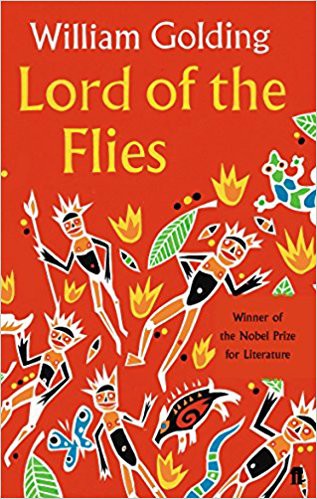
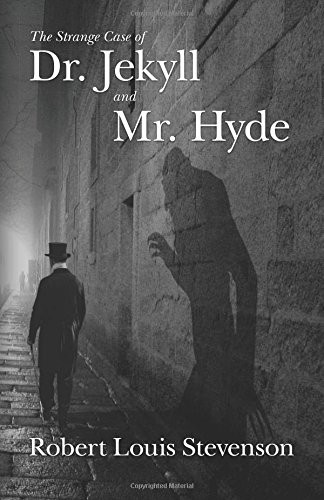
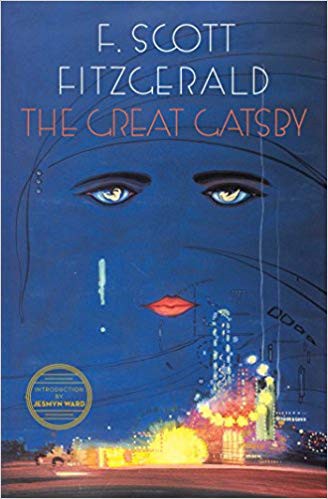
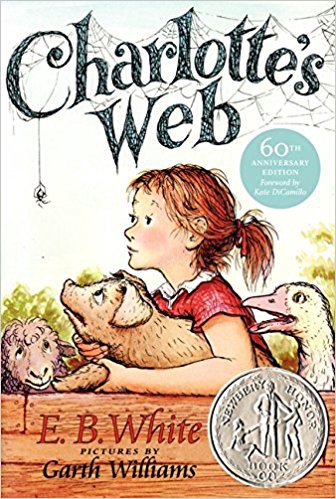
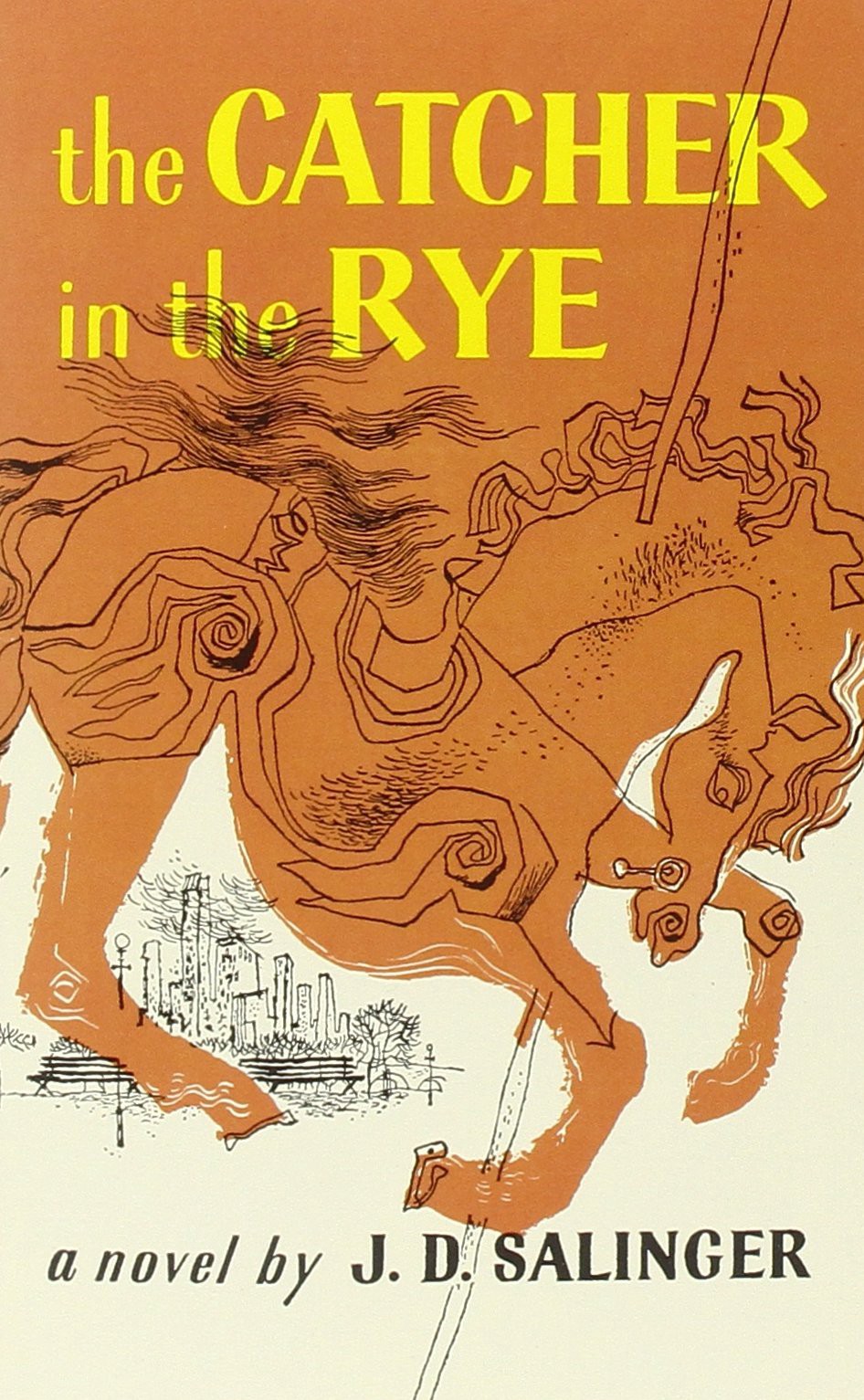
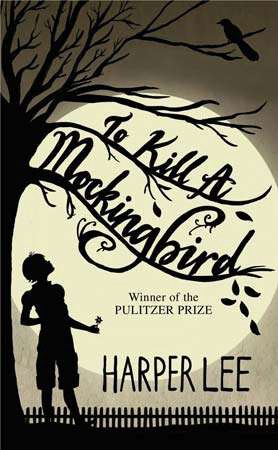
More from Joel Patrick
